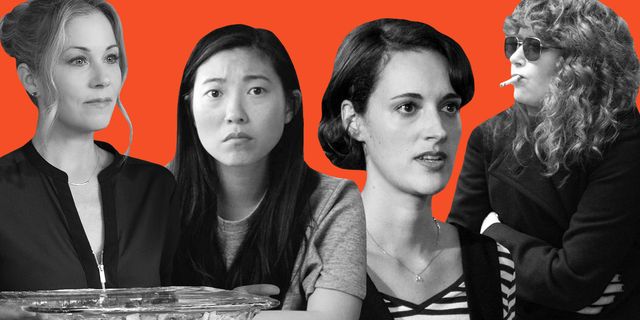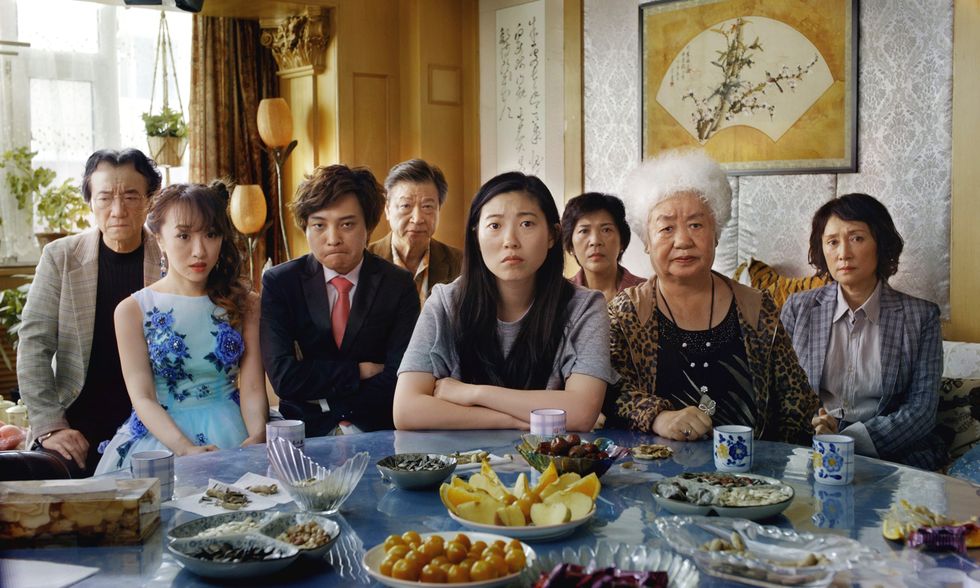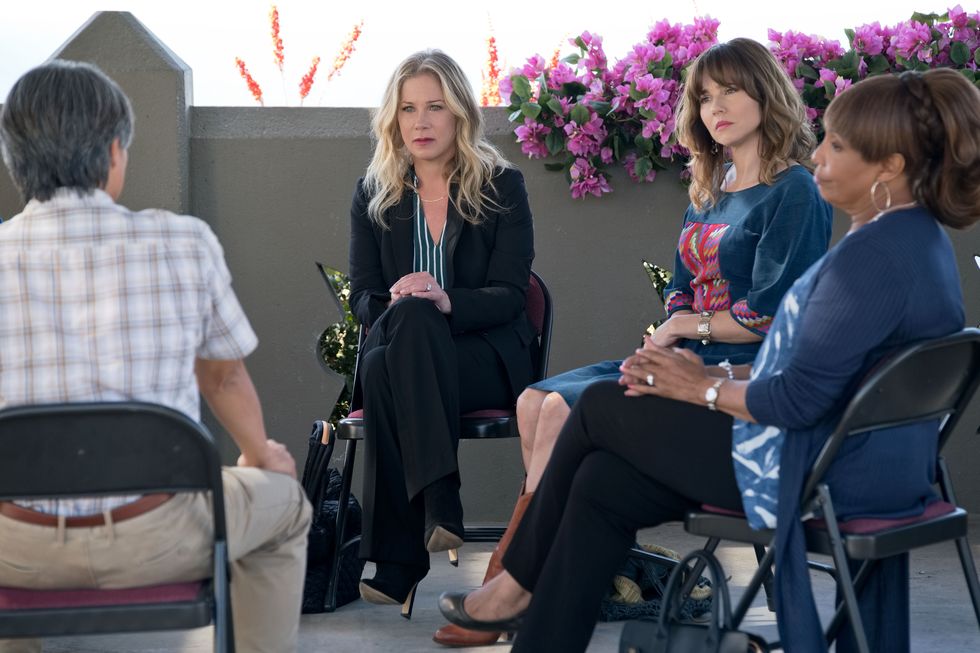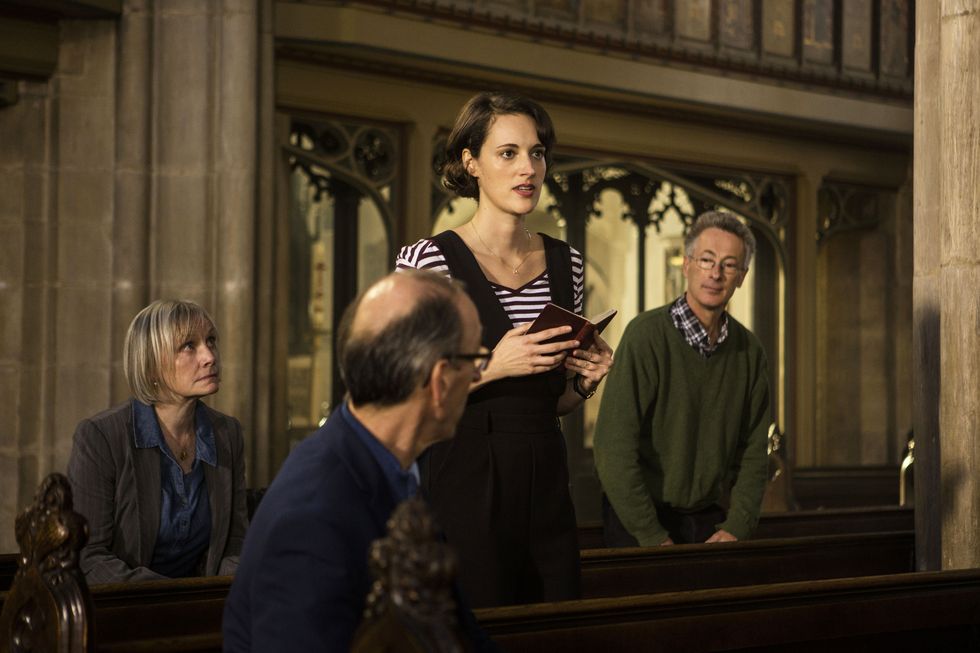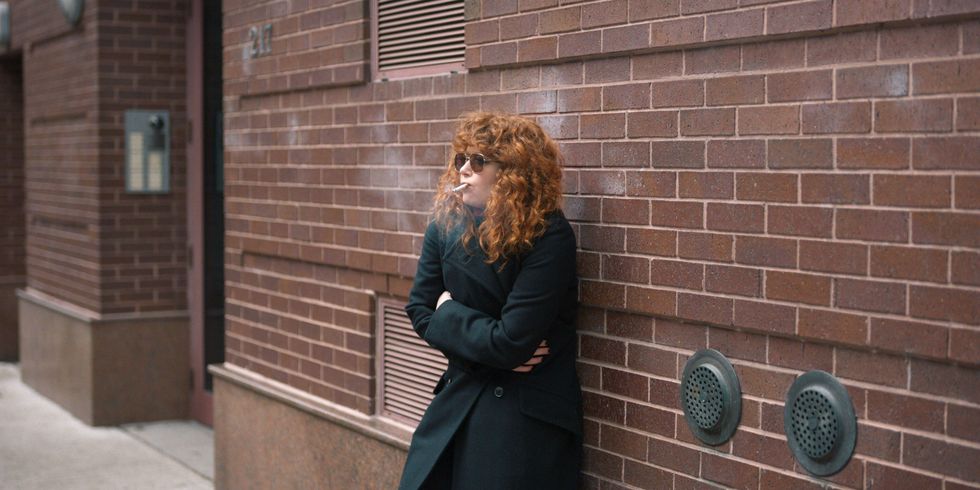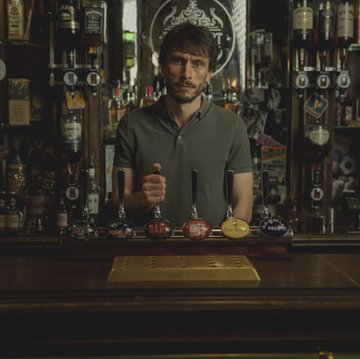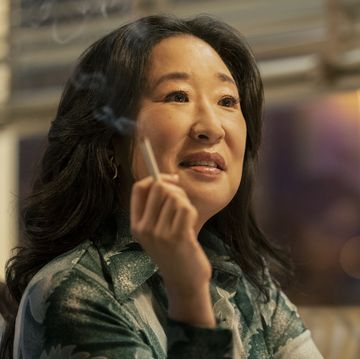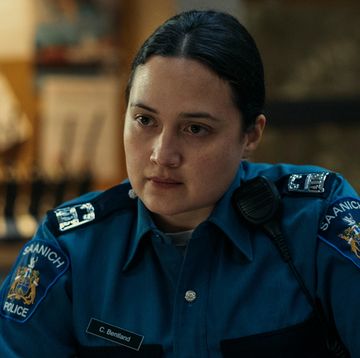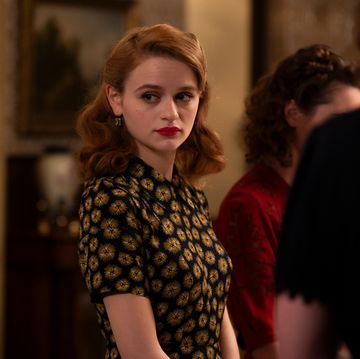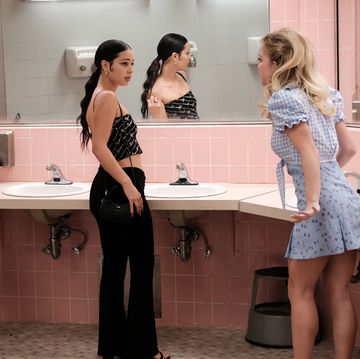Warning: Contains spoilers for Fleabag and Dead to Me.
Whenever you go—and you should—to see the beautiful, recently released film The Farewell, you will leave feeling hungry and introspective. Hungry, due to the sheer number of scenes showing Billi (played by Awkwafina) and her on-screen family sharing tense meals over large, hot plates of food. And introspective, because of the core storyline at the center of the movie: When Billi's grandmother is diagnosed with cancer, her family decides not to tell the elderly woman and instead conjures up a wedding in China so they can spend time with her in what could be her last days.
Lulu Wang, who wrote and directed The Farewell, based the movie on her own life; she’s even made a This American Life episode about her family's decision. Leaving the theater, I thought about my own grandparents. I thought about distance, both physical and not, and about eulogies and old age and death—all the topics that make you misty-eyed, even while sandwiched between strangers on the subway.
After watching The Farewell, I realized that there was something unexpected at the center of every Good Thing I had watched recently: the subject of death. Before The Farewell, I had just finished bingeing Fleabag. It was Dead to Me before that—which had followed the Emmy-nominated Russian Doll. All created by women, all with the same subject at the center, and all featuring the kind of characters I wanted to watch over and over again: women grappling with grief and loss in messy, difficult, wildly divergent ways, just like real people.
In Dead to Me, created by Liz Feldman, both of the main characters are dealing with grief. Jen (Christina Applegate, nominated for an Emmy) is distraught over the death of her husband, and we find out that Judy (Linda Cardellini) is coping with multiple miscarriages. Jen is angry and volatile, prone to outbursts and blasting screamo music in her car. She cries a lot. She is often unkind. Judy, on the other hand, is positive and almost airy, but finds herself caught up in lies and a toxic relationship. Their losses are different, as is the way they grieve, palpably so. But it’s their messiness, and how pain exacerbates that messiness, that made me want to sit down and binge-watch for hours on end. Whomst among us has not burst into tears out of nowhere or said the wrong thing at the wrong time to the wrong person because their brain was trying to juggle the real world and their internal emotional hellscape?
Feldman wrote for Glamour about coming up with the idea for the show, how it was partly spurred by her own grief and her efforts to get pregnant. She said, "I pitched the beginnings of Dead to Me, a show about two women who meet in a grief support group. Jen and Judy have suffered immense loss, but they gain strength and comfort from their newfound friendship. The story, though not autobiographical, is deeply personal. The facts are made up. The feelings are real."
Although Dead to Me is a dark comedy in its own rights, it’s vastly different from its genre sisters Fleabag (created by Phoebe Waller-Bridge) and Russian Doll (created by Leslye Headland, Natasha Lyonne, and Amy Poehler), which also feature lovable, grief-stricken women. In the first season of Fleabag, the audience watches as Fleabag (also played by Waller-Bridge) evades processing the deaths of the two people she loved most: her mother and her best friend. She deflects with humor and casual sex. She looks at the camera to let us know we can be in on the joke—and that so is she, okay? She's also bowled over by sadness in the most mundane scenarios, reminding us that heartache never fully goes away.
And we love her for it. Her avoidance feels relatable and true, especially as her grief bubbles to the surface and then gets pushed back down again. In that internet-beloved scene in the second season, when she confesses to the Hot Priest, telling him she’s “frightened of forgetting things, people,” we love her more.
Fleabag is similar to Russian Doll’s Nadia (Natasha Lyonne) in that way. Nadia’s avoidance of her mother’s death—and the role she feels she played in it—is part of what drives the plot forward, and her unabashedly fuck-you personality makes her immediately fascinating, even if it’s clear it’s hiding something underneath. But the moments where she confronts her younger self, and in the same breath confronts her own fears about getting older and dying, are some of the strongest. Nadia has to fully fall apart to literally come back to life, and watching her do so is cathartic.
In a Facebook post where she announced her partner was dying of cancer, writer Elizabeth Gilbert said, “Death—or the prospect of death—has a way of clearing away everything that is not real.” That’s what all of these female creators have been able to capture in their respective stories. We follow these characters through their evasion and their eventual breakdowns, and in dealing with their own piles of loss, each woman is able to eventually strip away all pretense and show us what it can look like at the bottom.
I would hate to imply that the best and most satisfying way to watch women on screen is to watch them in pain and anguish; I think it can be just as revelatory to watch women in celebration (have you seen the U.S. Women’s National Team lately?). But I also couldn’t stop thinking about these women and how refreshing it was to watch them rage and sleep around and joke and lie and grapple with deep-seated trauma—and still be the protagonists I wanted to root for, even in all their uncertainty.
In The Farewell, Billi must deal with grief while simultaneously pretending like it isn't happening, a dichotomy that leaves her emotional and questioning. In an interview with ELLE.com, Wang said that in making the movie she learned “there’s so much that I don’t know and I’ll never know, and that we as humans will never truly know. But we’re all trying to find the answers."
She said, "We’re all trying to put things in boxes...maybe that’s not the point. The point isn’t to find answers, the point isn’t to be able to put things in a neat little box, but it really is more about just compassion and respect and trying to better understand each other."
Watch Dead to Me and Russian Doll on Netflix; watch Fleabag on Amazon Prime; and see The Farewell in theaters.
